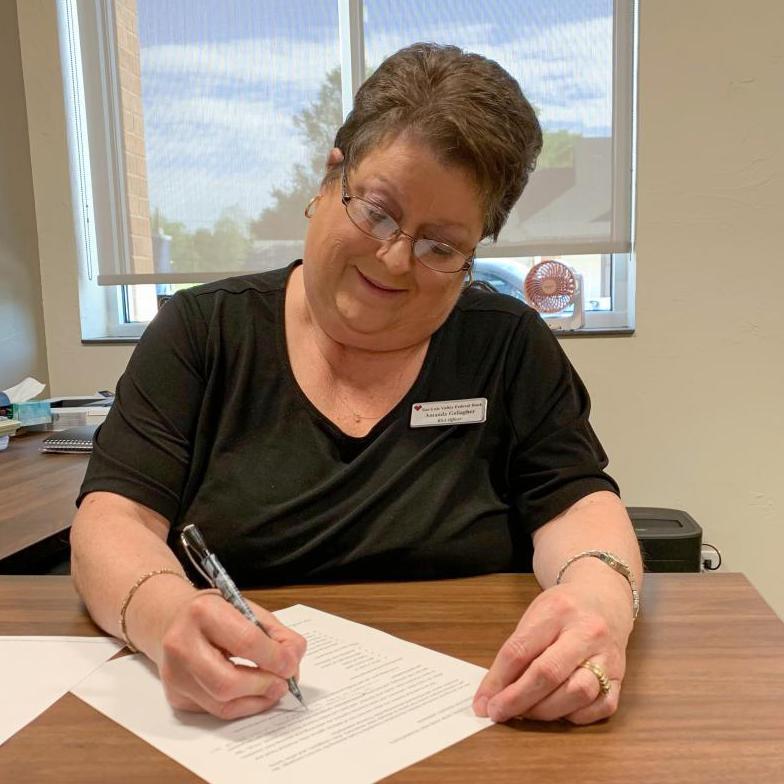Posted On: August 17, 2022 by San Luis Valley Federal Bank in: Financial Education

Most of the time, poorly formed scams are easy to spot. However, there could be times when you second guess your intuition and follow through with the scammer's requests, which ends in a disaster. Never assume a scam won't happen to you; scammers are becoming increasingly clever.
The quickest way to spot a scam is how they prefer to collect payment. Gift cards are becoming the preferred payment method. It is a scam if they ask for payments through gift cards. Gift cards are gifts, not payments. They will ask for payment in popular gift cards such as Target, Walmart, Apple®, iTunes®, or Google Play™.
Quick note: Only use money transfer services (such as Venmo, Apple Pay®, Google Pay™, and Zelle®) with people you know and trust. Scammers are starting to favor these money transfer apps as well.
Common scams to watch for:

Person of Authority Scam
A scammer will pretend to be someone with authority, such as the IRS, a bank, an energy company, or even the government. They will contact you and demand money and jail time if you refuse. They prey on fear and try to use their fake authority to pressure you. When contacted, ask for a name, a phone number, and the reference number. Tell them you will call back to verify; legitimate officials won't mind. Don't call the given number. Instead, look up the actual phone number from an official source such as account statements or official websites. Government websites frequently use .gov web addresses. Banks are starting to use .bank web addresses. Such as www.slvfed.bank

Imposter Scams
A scammer will pretend to be someone you know and need financial help. They may create a fake story of traveling and getting stuck in a country. They may say they are traveling in Europe, their luggage was stolen, and they need money to get back home. These scammers may have access to your family or friends' email or social media accounts. Ask questions that only the actual person would know the answer to (such as where did we first meet?) or find another way to contact and verify that it is them.

Computer Scams
Scammers often use a combination of Imposter and Person of Authority scams to trick you into clicking a harmful attachment or Internet links. There are several types of computer scams, but you need to be aware of the following two:
-
Ransomware: is malicious software, or malware, that prevents a user from accessing computer files, systems, or networks and demands that a ransom is paid to regain access. The harmful software is installed on your computer without your knowledge, usually from clicking email attachments, email links, or other Internet links or ads.
-
Phishing: scammers will message you through an email or text and trick you into giving up your personal information, such as Social Security numbers, account numbers, usernames, and passwords. Phishing messages look like they come from companies or people you know or trust, such as a friend, family member, a bank, or a popular shopping company. They often tell you there is suspicious activity or a problem on your account, and you need to click a link to solve it.
The best way to protect yourself is to slow down and think before you click. Scrutinize each message and look for irregularities such as strange usage of English or cleverly misspelled business names. Delete strange messages from strangers, and scrutinize strange emails from people you know. It's okay to delete these too! Your second line of defense is always keeping your computer, smartphone, and antivirus up-to-date. Make sure the antivirus software regularly runs.
Too Good to be True Scam
Did you randomly win a lotto? Are you selling something on the Internet and getting paid too much? Did a rich extended family member pass away? Be skeptical and suspicious. These scams make it sound like your luck just changed. You'll often need to pay a "small" fee (such as an exchange rate) to get the money. The scammer will collect the fee and never send you the original money. If it sounds too good to be true, it is! Take time to think it over.
Time-Sensitive Decision Scam
The clock is ticking! You must act now before this amazing once-in-a-lifetime deal is gone! Stop, think it through—cons like these prey on your fear of missing out. Scammers will use high-pressure tactics to make you act without thinking.

Trust or Romance Scam
Scammers will establish a long-distance relationship (romantic or friendship) and ask to meet up, but it never happens. They frequently ask for money to cover supposed unexpected expenses. Be cautious with the personal information you post on social media and online. Scammers will use this information to befriend you.
Before you act on any request, always stop and think it over. If you are unsure, talk to someone you trust before taking action. A decision rarely has to be made immediately. Remember, you may also report the scams to the authorities to potentially stop this scam from happening to someone else. Call your local police, or submit the fraud or scam to one of the following government agencies:
Federal Bureau of Investigation Internet Crime Complaint Center Federal Trade Commission
Check out this video Why Report Fraud? from the Federal Trade Commission.
Remember we are here to help you with your banking needs.
Janelle Gaither
Member Service Representative
West Alamosa Office
3415 Mariposa Street
Amanda Gallagher
BSA Officer
Main Alamosa Office
401 Edison Ave.
Jason Duran
Electronic Banking Assistant
Main Alamosa Office
401 Edison Ave.
Rory Gallegos
Electronic Banking Supervisor
Main Alamosa Office
401 Edison Ave.















0 comments